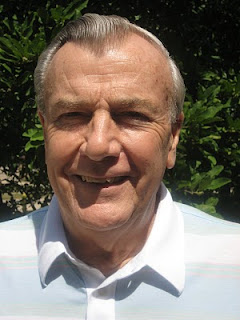 We’ve been stuck in Fort Wayne airport without coffee for hours so what else is there to do but blog?
We’ve been stuck in Fort Wayne airport without coffee for hours so what else is there to do but blog?As the vuvuzela screech in B flat subsides and the adoration and adulation of the World Cup evaporates, I’ve been thinking about how we choose our heroes. We cheer and get excited about eleven men chasing a ball round a pitch but are less enthusiastic about welcoming disfigured and damaged soldiers home from the war in Afghanistan.
This week I’ve been staying with one of my personal heroes. Uncle Ray is my late mother’s younger brother. As a teenager he left the farm and decided to go off to study at London Bible College. Before graduating, he and his fellow students had to pull a cart round the roads of rural England, stopping in the evenings to hold meetings and sleeping on the floor in churches. They vied with each other to get the space in the pulpit which was carpeted. Like the first disciples, they weren’t allowed to carry any money and they lived off the goodwill of farmers and local people. Six young handsome men stare joyfully from old photographs. They were trained and ready to take on the world for God. My uncle admits he thought he knew it all then. His enthusiasm and confidence knew no bounds.
He went off to teach in Sierra Leone, West Africa, where he met and married an American missionary, Arlene. Together they taught at the Bible College in Freetown and in the years that followed they had four fine sons. For many years they lived in the bush, 120 miles up country in a town called Kabala, accessible only on dirt roads which were impassable when it rained. It was on one of these roads that Ray and his second son Tim, then 10, were travelling on a motorbike when they had a horrible accident which resulted in terrible injuries for both and a long and agonising eight hour journey to get to a hospital. Tim’s leg needed serious medical attention for years afterwards so finally the family returned to the US, where they continued to work in the Missionary Church.
Tim went on to graduate from college and was talking about getting married when at the age of twenty-three he was killed in a car accident. The family had to make the decision to turn off the machine and let their precious son go to God.
Last year, Ray suffered from multiple myeloma, spent many weeks in hospital and went through a stem cell transplant. Over the months, he has slowly regained strength and has returned to work part-time.
Now 73, Uncle Ray should be embittered and angry. Where was his God when he and Tim lay bleeding at the side of an African track; when they pleaded for Tim’s life after the car accident; when he faced cancer treatment? But he’s not bitter; he’s quietly, sorry make that noisily, full of good humour and bad jokes. Here’s his current favourite:
There were three devout men: a Catholic priest, a Baptist pastor and a Jewish rabbi. They were arguing about which of them had the greatest powers of religious persuasion. So they agreed that each of them would go into the woods in turn and attempt to convert a bear to faith.
When the Catholic priest returned he was delighted at his success. He told the others that he had anointed the bear with holy water and that the bear would soon be taking his first communion. It was the pastor’s turn next and he was equally pleased with his efforts. He said that he had preached the word to the bear and that the bear was going to be baptised the next Sunday.
When the rabbi returned from the woods he was badly injured and covered in blood. The others asked what had happened and he said woefully: ‘Perhaps it was a mistake to start with circumcision.’
To me a hero is someone who knows how to handle Plan B – someone who isn’t totally destroyed by life’s tragedies and disappointments but who still chooses to live, love and laugh. In the days following Tim's death, Ray would go into his study and decide whether he believed in God for that day. An act of the will. One day at a time.
Through the sadness and pain he exudes warmth, acceptance and compassion which touch the lives of everyone who knows him. He’s not pretending; he’s living life in its raw reality with a faith in God which is inspirational.
He often says that most of the things we moan and complain about can be fixed. One of Ray’s good friends, Donna Cleven, wrote a poem inspired by his example: (Remember we’re in the US)
Problems (or not)
Here’s something I have learned,
Though at first I thought it funny,
It’s really not a problem at all
If it can be solved with money.
You can’t buy health or strength,
Or the love of a prodigal child.
You can’t buy peace of mind,
Or reason for a friend gone wild.
You lost your theatre tickets?
You burned the dinner rolls?
An ink pen in the load of wash?
Your favourite jeans have holes?
Your dishwasher sprung a leak?
A fender bender at the mall?
Remember: if it can be fixed with money
It’s really not a problem at all.
I feel as if I’ve been staying with a living saint this week. What a privilege! I will be happy to be half as faithful as he. I love and salute you, Uncle Ray. You’re my hero!


